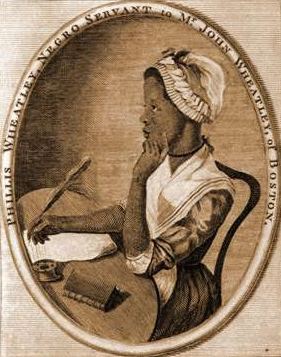Massachusetts
Studies Project
Teaching Tools for Local History
** IMAGES **
 Introduction:
Human beings process visual (non-textual) information better than textual
or numeric information. Through the use of visual images students can
develop a sense of both place and time. Visual images from drawn from
students' current or historical surroundings can elicit creative thinking
and writing in the classroom.
Introduction:
Human beings process visual (non-textual) information better than textual
or numeric information. Through the use of visual images students can
develop a sense of both place and time. Visual images from drawn from
students' current or historical surroundings can elicit creative thinking
and writing in the classroom.
General Teaching Tips: Paper-based ("low tech") images and digital images can both be used effectively in the classroom. Original or paper images have the advantage of immediacy, while digital images can be printed, enlarged, projected and annotated. In addition, images can be saved to disk, then copied into folders and saved on classroom computers or onto school websites.
Basic Questions
- When was this image created?
- What is the image type or format (drawing, cartoon, painting, photograph)
- Is this a primary or a secondary source? How can you tell?
- When was this image created? If there is no obvious date, what clues can help you date the image?
- Where is the original image stored?
Critical Thinking Questions
- Why was the image created? What is the point of view of the image? Whose story is it telling?
- What interest do you think the photographer has in this subject? What is the creator's point of view? Does this tell you why the image was created?
- What does the image reveal about its subject?
- What did you already know about this subject before viewing the picture that might have affected the way you read it?
- What is the setting of the image?
- What sorts of details does it include or emphasize?
- What sorts of details does it exclude?
- What are the underlying messages of the image and motives of the image's creator?
- How long after the event was the image created? How does this influence the image's content or perspective?
- Why do you think the image was taken or drawn at this particular moment in time?
- What questions would you like to ask the photographer or artist to find out more about the subject of the image?
- What questions would you like to ask a person(s) in the image?
- How could you do further research on this subject?
Worksheet
Photo Analysis Worksheet - U.S. National Archives and Records Administration http://www.archives.gov/digital_classroom/lessons/analysis_worksheets/photo.html
Resources and Websites
The American memory Project, Library of Congress. Gateway to rich primary source materials relating to the history and culture of the United States. The site offers more than 7 million digital items from more than 100 historical collections. Contains images, photographs relating to local communities in Massachusetts. http://memory.loc.gov/
Dating
Photographs by Format and Technology by Nicolette Bromberg, University
of Washington
http://content.lib.washington.edu/imls/kcsnapshots/documents/DatingPhotos.pdf
Dating Old Photographs by Halvor Moorshead - includes examples of old photographs sorted by decade to compare with your photos.
"Spy Letters
of the American Revolution: Classroom Activities" Guidance in analyzing
political drawings (Stamp Act Funeral and Bostonians in Distress,
Revere's Boston Massacre engraving, print of the Battle of Bunker's Hill.)
http://www.si.umich.edu/spies/index-stories.html
"Images of
the American Revolution" National Archives and Records Administration
Teaching With Documents series. Secondary level lesson plan linked to
images of paintings, engravings and documents pertaining to the American
Revolution
http://www.archives.gov/education/lessons/revolution-images/activities.html
Online Photographs of Boston and Vicinity. Includes a section of historic photos. http://www.boston-online.com/Photos/index.html
Image Searches on the Web: "Fishing Expeditions" for local history images can sometimes return interesting results. Try searching for your town or neighborhood name and gif or jpg, for example "rehoboth gif jpg". Or use Google's image search feature by selecting the "Images" tab before entering your search term at www.google.com. Note: Be sure to check the results of this type of general web search for authenticity and accuracy. Rehoboth is also a town in Delaware!
This
resource book was developed with supports from
The Massachusetts Historical Records Advisory Board, Office of the Secretary
of the State
and
The Massachusetts Foundation for the Humanities